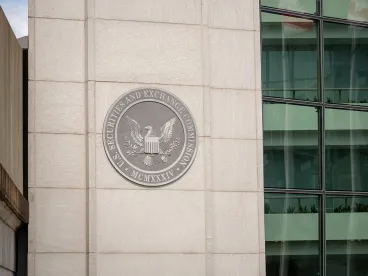On January 16, the U.S. Securities and Exchange Commission (SEC) announced a record $18 million sanction against JP Morgan for Rule 21F-17(a) violations, sending the strongest message yet that the SEC is cracking down on restrictive non-disclosure agreements and other attempts to muzzle whistleblowers. In recent months, the agency has increased its enforcement of Rule 21F-17(a), which prohibits a person or company from taking any action impeding the ability of an individual to blow the whistle to the Commission.
According to the SEC, JP Morgan regularly asked retail clients who had been issued a credit or settlement from the firm of more than $1,000 to sign confidential release agreements which “required the clients to keep confidential the settlement, all underlying facts relating to the settlement, and all information relating to the account at issue.” The Commission claims that “even though the agreements permitted clients to respond to SEC inquiries, they did not permit clients to voluntarily contact the SEC.”
The $18 million penalty is the largest ever levied by the SEC for violations of Rule 21F-17(a). In September, the agency fined D.E. Shaw $10 million for violating Rule 21F-17(a) through restrictive non-disclosure agreements. Prior to this, the largest penalty for a Rule 21F-17(a) violation was a $400,000 levied penalty against the Brink’s Company in 2022.
The size of the JP Morgan penalty marks a major step toward accountability, deterrence, and whistleblower rights. It sends a message that illegal non-disclosure agreements that obstruct the ability of employees or clients to report potential crimes to law enforcement will not be tolerated.
“Whether it’s in your employment contracts, settlement agreements or elsewhere, you simply cannot include provisions that prevent individuals from contacting the SEC with evidence of wrongdoing,” said Gurbir S. Grewal, Director of the SEC’s Division of Enforcement. “But that’s exactly what we allege J.P. Morgan did here. For several years, it forced certain clients into the untenable position of choosing between receiving settlements or credits from the firm and reporting potential securities law violations to the SEC. This either-or proposition not only undermined critical investor protections and placed investors at risk but was also illegal.”
Rule 21F-17(a) was enacted following the passage of the Dodd-Frank Act and the creation of the SEC Whistleblower Program in 2010. It was not until 2015, however, that the SEC took action enforcing the rule, fining KBR $130,000 for its use of restrictive non-disclosure agreements.
Over the next several years, the SEC took over a dozen actions for Rule 21F-17(a) violations. Still, the sanctions never exceeded a few hundred thousand dollars. The lack of robust penalties led to a cost-benefit analysis for companies where the risk of Rule 21F-17(a) paled compared to the risk of an employee becoming an SEC whistleblower.
The penalties levied against JP Morgan and D.E. Shaw signal a major turning point in the SEC’s enforcement of the rule. Companies have surely noticed and will revisit their use of confidentiality and non-disclosure agreements. While NDAs that impede reporting to the SEC are not legally valid, they still create a massive chilling effect. By cracking down on these NDAs, the SEC is taking a major step towards cleaning up fraud on Wall Street.
Furthermore, the size of the sanctions creates an opportunity for whistleblowers to qualify for awards for reporting Rule 21F-17(a) violations. The SEC Whistleblower Program provides monetary awards to qualified whistleblowers when they voluntarily provide original information, leading to a successful enforcement action with at least $1 million in sanctions.
Companies must worry about steep fines for Rule 21F-17(a) violations and the possibility that employees will blow the whistle on such misconduct. Restrictive NDAs threaten to undermine the efficacy of the hugely successful SEC Whistleblower Program. The SEC has taken a major step by changing the cost-benefit analysis for companies seeking to use contracts to silence whistleblowers.
Geoff Schweller also contributed to this article.




 />i
/>i

